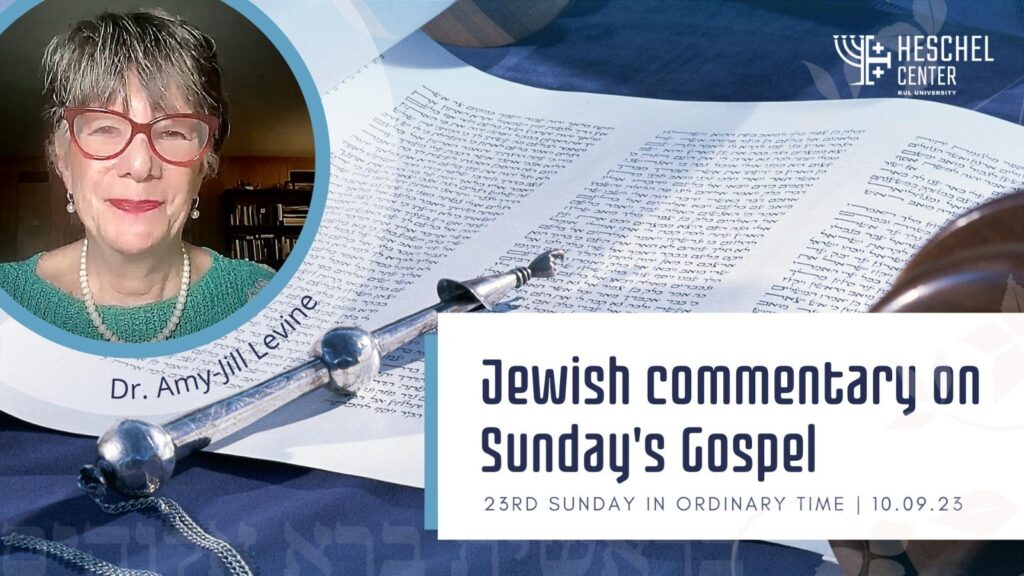Forgiveness which may do harm to the victim and the abuser
It sometimes happens that the offending brother or sister shows no remorse, takes no responsibility for the harm done, and makes no effort to repair the damage. Then forgiveness may not be healing but dangerous both for the individual who has been abused and for the community. This is how Jesus’ indications on forgiveness and […]

It sometimes happens that the offending brother or sister shows no remorse, takes no responsibility for the harm done, and makes no effort to repair the damage. Then forgiveness may not be healing but dangerous both for the individual who has been abused and for the community. This is how Jesus’ indications on forgiveness and care for the conversion of a brother or sister is commented on by Dr. Amy-Jill Levine, professor of the New Testament and Jewish Sciences, the first Jewish woman to lecture on the New Testament at the Pontifical Biblical Institute in Rome, in her commentary for the Catholic University of Lublin Heschel Center for the Sunday, September 10.
In the Gospel, Jesus urges us to an offending brother or sister “seventy times seven”. At the same time, His words indicate that forgiveness is as crucial as the genuine care for the repentance of the person inflicting harm. Christ never belittles the magnitude of evil and never says that nothing has happened. “Jesus teaches that anyone who puts a stumbling block before community members, whom he calls ‘little ones’ – the expression ‘little ones’ suggests people who need protection – would be better off drowned,” stresses–Dr. Amy-Jill Levine.
Since “the assembly is where the vulnerable are to be protected, not forced into the presence of their unrepentant abusers”, Jesus offers three pointers which offer the abuser a chance for repentance. The first step is to correct the offending brother or sister privately: its intent is reform, not shame. “For Matthew, sin should not lead to communal hate; it should lead to communal correction,” explains the professor of the New Testament and Jewish Sciences.
If the first step has proven unsuccessful, Matthew advises that the abuser be confronted by two or three witnesses. “Public humiliation is still avoided, but the seriousness with which the assembly takes the offense is reinforced. Again, members of the assembly encourage the offending brother or sister to repent,” indicates Dr. Amy-Jill Levine.
Once the second attempt has failed, the community must be advised of the offence and urged to talk with the abuser. “Should this third attempt fail, Matthew instructs, ‘Let such a one be to you as a gentile and a tax collector’,” highlights Dr. Levine. Offenders who remain adamantly unrepentant are to be removed from the assembly, but they are still brothers and sisters. “By treating the abuser, the sinner, as a gentile and a tax-collector, the community always holds out the hope for repentance. By connecting the concern for forgiveness to community discipline, the Gospel protects those who have been sinned against,” sums up Levine.
A full text of the commentary on the Heschel Center of the Catholic University of Lublin website.
Related

Christian Hope
Luis Herrera Campo
15 April, 2025
3 min

How to gain a plenary indulgence during the Jubilee Year?
P Angel Espinosa de los Monteros
14 April, 2025
3 min

The Christian Sacrifice
Luis Herrera Campo
14 April, 2025
4 min

A Prodigious Mind: Thomas Aquinas
Jesús Ortiz López
14 April, 2025
6 min
 (EN)
(EN)
 (ES)
(ES)
 (IT)
(IT)

